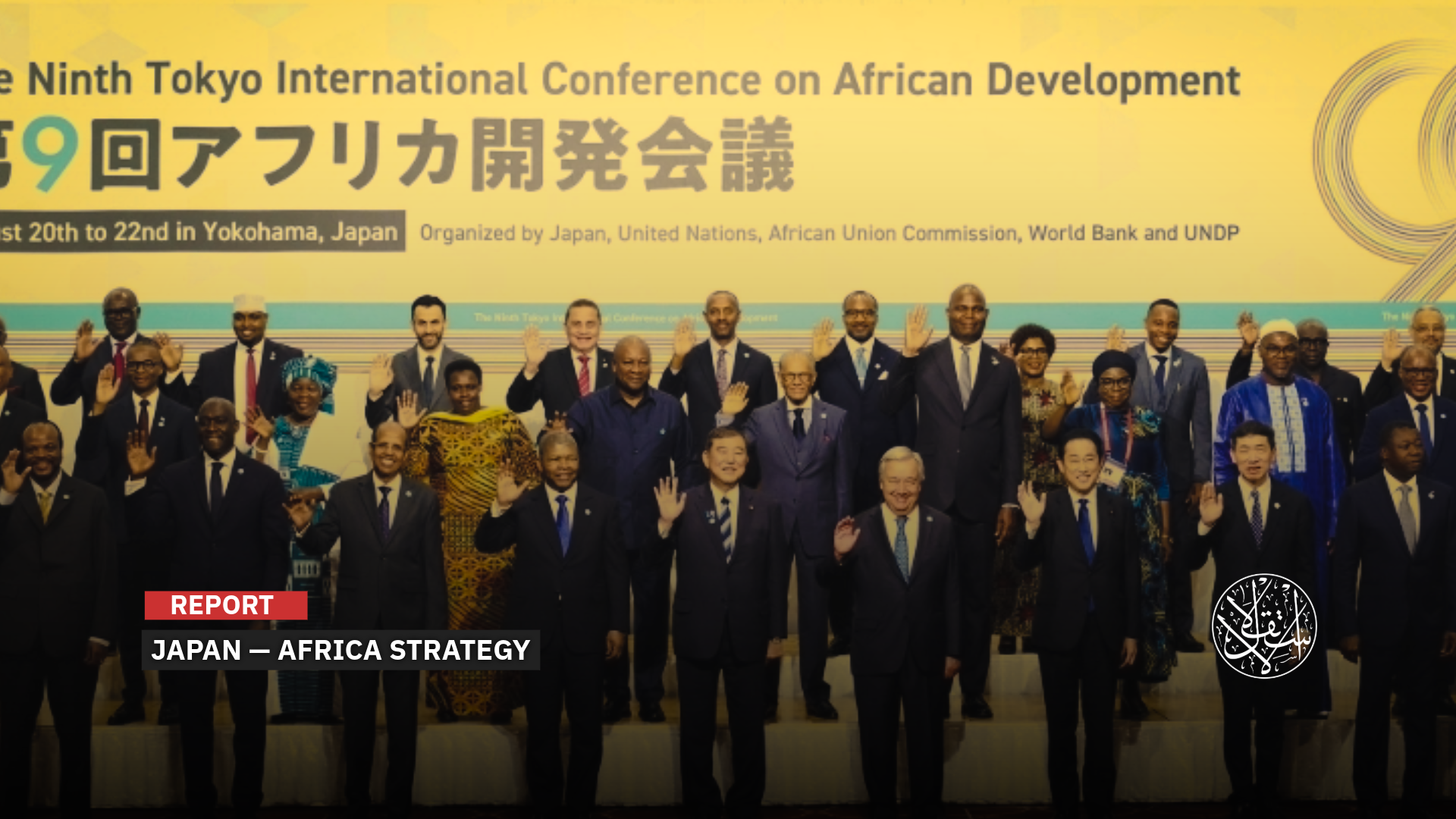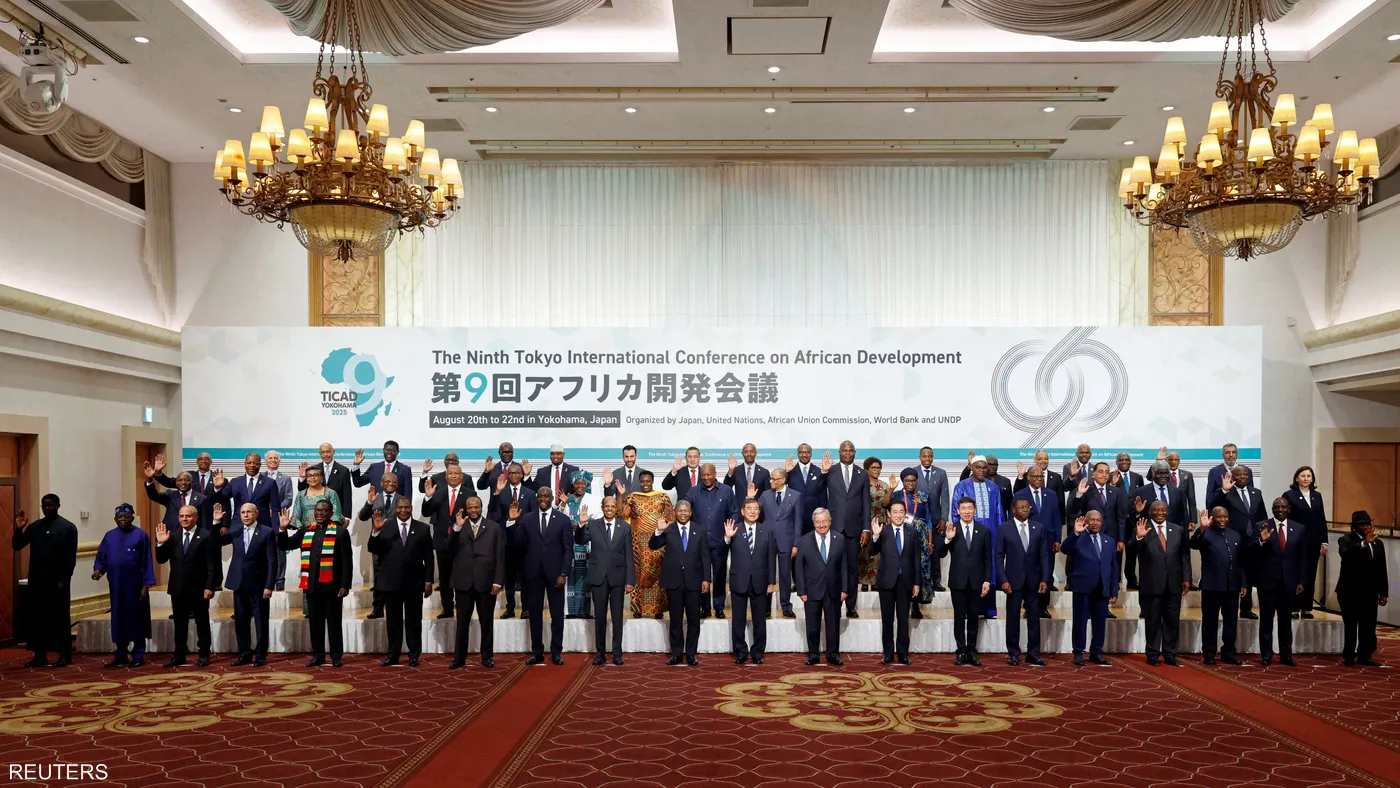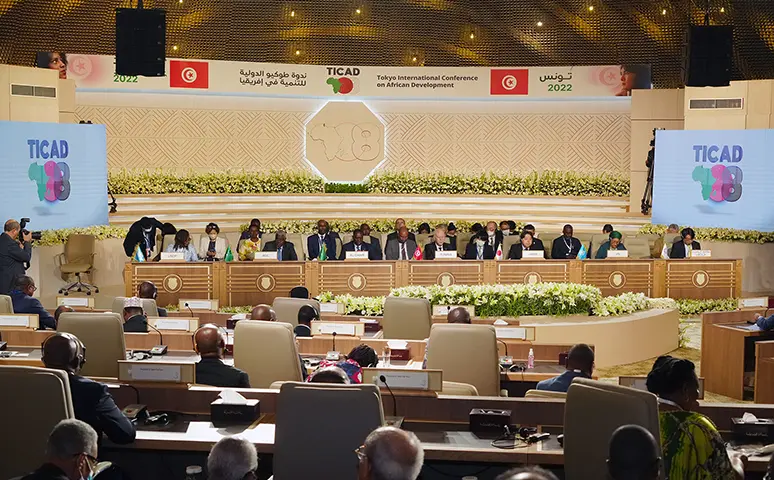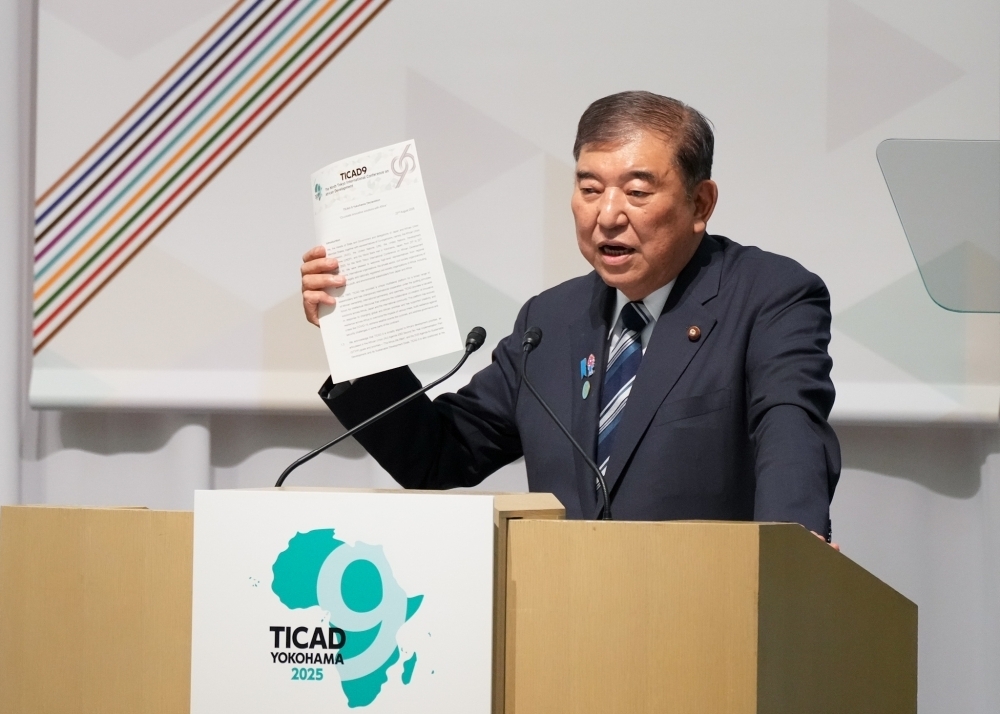TICAD Summit in Focus: Can Japan Really Challenge China in Africa?

Japan seeks to reposition and strengthen its presence in Africa.
Amid growing competition among major powers for influence in Africa and a drive to forge strategic partnerships serving their economic interests, Japan is proposing a new approach to its relationship with the continent under the banner of “developmental assistance.”
At the ninth Tokyo International Conference on African Development (TICAD 2025), held in Yokohama from August 20 to 22, 2025, Naoki Ando, deputy head of the Japan International Cooperation Agency, reaffirmed his country’s commitment to a model of “developmental assistance” rather than traditional aid for Africa.
Ando highlighted that recycling repayments of loans from Asian countries provides room for maneuver without increasing spending, at a time when U.S. and European support for key sectors in several African states has been waning.
In his opening address on August 20, Japanese Prime Minister Shigeru Ishiba outlined the contours of this new approach, including a plan to train 30,000 people in artificial intelligence across Africa over the next three years.
He also unveiled a vision to establish a distribution network linking African nations with Indian Ocean countries as part of the region’s economic initiative, aiming to attract investment from Japanese companies active in India and the Middle East to Africa.
The prime minister stressed Japan’s commitment to supporting small and medium-sized enterprises that generate significant social and environmental impact, particularly in agriculture, food processing, and manufacturing.
He added that Japan will provide loans of up to $5.5 billion in coordination with the African Development Bank to promote sustainable development in Africa and address issues related to the continent’s debt.
Japan launched the TICAD conference in 1993 in partnership with the African Union Commission, the United Nations, the UN Development Program, and the World Bank, with the aim of advancing development, peace, and security in Africa through strengthened cooperation and multilateral partnerships.

Strategic Direction
The Japan Times reported on August 25, 2025, that Japan has shifted its focus from aid to investment in African countries, at a time when China and Russia are seeking to expand their presence on the continent.
The outlet noted that Tokyo, during the TICAD summit, pledged to help African nations train 300,000 workers in collaboration with Japanese companies, while also urging its businesses to invest and expand across Africa.
In this context, Sadaharu Kataoka, an expert on Japan-Africa relations at Waseda University in Tokyo, said, “The Japanese government has long wanted more Japanese firms to enter and develop African markets in a bid to make full use of its official development aid from the beginning of the conference.”
Kataoka told the site that the number of bases established by Japanese companies looking to expand into Africa has grown from 520 in 2010 to 948 in 2023, according to the Ministry of Foreign Affairs.
“Up to 10,000 Chinese businesses may be active in Africa, dwarfing previous estimates, according to findings from consultancy firm McKinsey that challenge traditional views of China’s engagement with the continent,” he added.
Kataoka also noted that Russia, while continuing its invasion of Ukraine, is seeking to bolster its influence in Africa through military cooperation as a means of pressure to create a favorable international environment.
He noted that Japanese companies “lag far behind their Chinese counterparts, with many still hesitant to operate in the market due to risks associated with political instability and limited predictability.”
The United Nations projects that Africa’s population will reach around 2.5 billion by 2050, representing roughly a quarter of the world’s population.
“The opportunities and risks on the continent are two sides of the same coin; population growth will create vast new markets,” The academic said.
In the same vein, The Diplomat, a magazine specializing in Asian affairs, argued that Japan is seeking to reposition itself and strengthen its presence in Africa, not as a donor, but as a long-term partner, amid intense international competition for influence on the continent.
In an analysis published on August 19, 2025, the magazine noted that Japan’s efforts coincide with China’s Belt and Road Initiative and renewed Western attempts to extend influence in Africa, placing Tokyo in a crowded and complex geopolitical landscape.
The report also highlighted that Japan’s record high net external assets in 2024 provide the country with capital and the capacity to increase foreign investment, including in Africa, particularly in infrastructure, technology, and industrial development.
The magazine noted that Japan aims to invest in projects with long-term social and economic benefits, including healthcare systems, education, local manufacturing, and environmental protection, observing that this approach resonates with African leaders.
It added that Tokyo also plans to strengthen diplomatic ties through a “partnership” model, deliberately avoiding political interference.
The report highlighted that this stance has earned Japan credibility across the continent, particularly among governments wary of aid tied to geopolitical conditions.

Competition with China
In analyzing these developments, Da Zhigang, director of the Northeast Asia Studies Institute at the Heilongjiang Academy of Social Sciences, focused on the competition Japan has entered with China over the African continent.
In an opinion piece published by the Chinese site Global Times on August 23, 2025, Da Zhigang argued that Japan’s diplomatic and economic engagement with Africa has accelerated rapidly, but remains far from matching China’s level of competition.
Japan’s trade with Africa reached around $24 billion in the early 2020s, and by 2024 the continent accounted for just 0.5 percent of Tokyo’s foreign direct investment, according to the Japanese Ministry of Finance.
By contrast, China’s trade with Africa approached $300 billion in 2024, with estimates from the Heinrich Foundation indicating that Africa represents roughly 15 percent of China’s overseas investment.
The Chinese scholar added that China’s cooperation with Africa under the Belt and Road Initiative has achieved significant results, with the concept of a “global community with a shared future” resonating strongly among African nations.
In contrast, Japan has made little tangible progress in recent years, with few major projects to showcase.
Da Zhigang argued that rather than dwelling on its shortcomings, such as a condescending approach, neglect of African priorities, and a narrow focus on “resource diplomacy”, Tokyo is increasingly concentrating on how to respond to Chinese competition.
He concluded that Japan does not need to use other countries as a pretext for expanding its engagement with Africa, but should instead follow a genuine path of partnership: mutual respect, fairness and justice, fair competition, and mutually beneficial cooperation.
Meanwhile, Asian economic and financial affairs journalist Anthony Rowley suggested that Tokyo’s recently announced initiative for an economic zone spanning the Indian Ocean and Africa could place it on a path of overlap and confrontation with China’s Belt and Road Initiative.
Writing in an opinion piece for the South China Morning Post on August 23, 2025, Rowley warned that Japan’s relaunch of a major land and maritime infrastructure initiative stretching across East Asia, Africa, India, and the Middle East risks putting Tokyo in direct competition with Beijing.
He noted that the ongoing competition between Japan, China, and India to consolidate economic, and to some extent strategic, influence across Asia and beyond through infrastructure links risks overlapping efforts and wasting resources.
“This is before we even consider problems of incompatible technical standards and quality benchmarks, from railway gauges to public procurement policies,” he added.
Rowley stressed that competing infrastructure initiatives place pressure on both public and private finances, exacerbating government budget deficits that must be addressed through higher taxes or borrowing from bond markets.
This, he argued, makes it harder for investors to assess the credibility or viability of various credit plans, while also complicating the work of multilateral banks in supporting and endorsing these projects.
He called for greater “top-down” coordination in infrastructure initiatives, noting that former U.S. president Donald Trump’s push to withdraw from multilateral efforts and engage directly with institutions has created an opportunity for Asian leaders to strengthen ties among themselves.
“If this can be translated into more cooperation, rather than competition, in providing connected infrastructure, it would ultimately be better for everyone,” Rowley concluded.

Future Outlook
Looking ahead, there is significant room for Japan to strengthen its strategic presence in Africa, according to the French Strategic Research Foundation.
In a report published on August 19, 2025, the foundation noted that declining U.S. aid, Europe’s relative withdrawal from regions such as the Sahel, and the desire of many African countries to diversify their partnerships, could create openings for Japan to leverage its influence.
The report argued that Japanese diplomacy should adapt by focusing on selected countries and sectors where its comparative advantages closely align with the needs of its partners.
It added that adopting a focused strategic approach, building partnerships with like-minded actors, could enhance Japan’s influence while providing African nations with a balanced, multilateral alternative to Chinese and Russian models of strategic sway.
Equally important, the report emphasized, is deepening cultural and human ties to improve Japan’s understanding of local African contexts and its ability to respond effectively, through scholarships, training exchanges, and less restrictive immigration policies.
The ninth Tokyo International Conference on African Development offers Japan a crucial opportunity to assert and consolidate its strategic vision for Africa, translating diplomatic goodwill and specialized expertise into locally grounded partnerships that promote sustainable development and reinforce a balanced, multipolar international order.
Meanwhile, Modupe Famakinwa, head of corporate finance and investor relations at the African Finance Corporation (AFC), called for addressing the limited engagement of Japanese banks in Africa.
In a forward-looking report published on African Business on August 11, 2025, Famakinwa stressed that a necessary next step is to persuade a broader range of Japanese financial institutions and companies to explore the opportunities available on the continent.
The key to further progress in the Japan-Africa relationship, Famakinwa says, is “dialogue, dialogue, dialogue”. On-the-ground engagement is vital to help Japanese investors gain a better understanding of African investment opportunities compared to what they could muster through desktop research, she says.
“We believe strongly that there is value in this relationship, and we’re constantly looking for ways to grow and develop and expand this relationship on both sides.”
Famakinwa highlighted that this approach is essential to help Japanese investors gain a better understanding of African investment prospects, beyond what can be achieved through desk research.
The economic official noted that the Tokyo International Conference on African Development (TICAD) itself will provide a valuable platform to open more doors for Japanese investment.
She expressed “strong confidence” that Japan-Africa relations will continue to grow over the long term, particularly if current obstacles to investment and capital flows can be overcome.
Sources
- Macroscope | Why Japan should cooperate with China on infrastructure, not compete
- Japan should not label China as its ‘imaginary rival’ in Africa
- Africa looks to Japan as a source of capital
- TICAD 9: Japan’s Renewed Vision for Africa’s Future
- Japan in Africa: A discreet yet influential partner amid growing international competition
- Risk reduction key to boosting Japanese investment in Africa
- JICA announces commitment to an Aavishkaar Fund to boost impact investment in Africa and Asia









